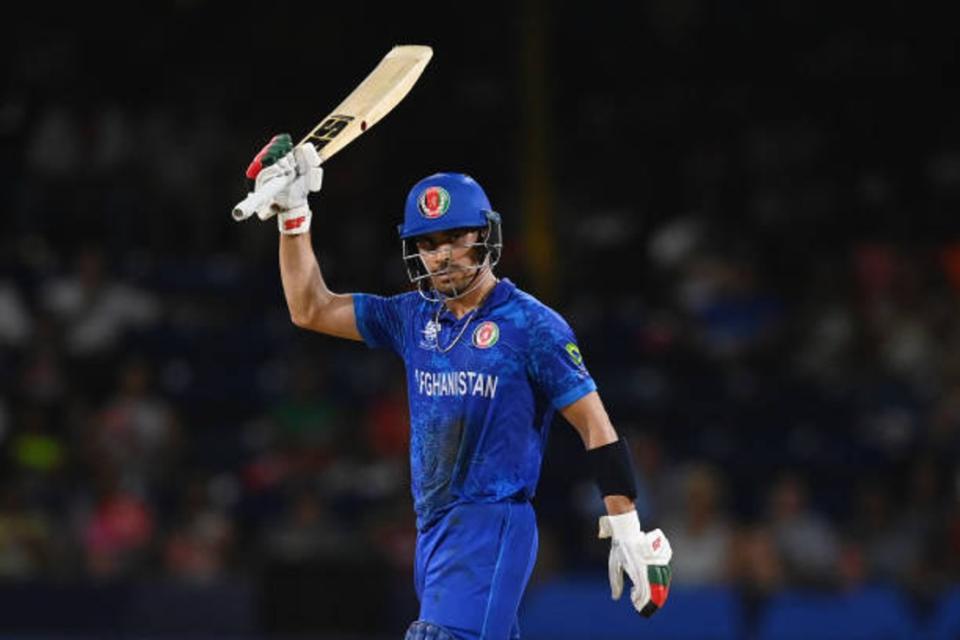T20 World Cup: The Taliban shadow ruining great Afghanistan run

When Afghanistan run out at the Brian Lara Cricket Academy Stadium to take on South Africa in the T20 Cricket World Cup tomorrow, it’ll mark a monumental moment in the history for the cricketing nation.
For it will be their first semi-final in a major competition with, under former England international Jonathan Trott, Afghanistan becoming a dangerous force in world cricket.
But hidden in the shadows, lurking in the darkness, of the Afghans’ success in men’s cricket is a humanitarian disaster where oppression of women seemingly ranks highly on the domestic policy agenda.
When the Taliban enacted the Fall of Kabul in 2021, where thousands were evacuated from Afghanistan and the terror group regained control of the nation, the men’s international team was allowed to go on.
The same rights were not afforded to the female population. Players including former captain Roya Samim were forced to flee, heading to Canada to escape the Taliban.
Reality under Taliban
Last year she said: “To go home now is impossible because the Taliban don’t accept me.” She added that she’d return home if cricket was allowed amongst the female population.
A year on nothing has changed, and teen Afghan women have now gone 1,000 days without access to schooling.
To be a full member of the International Cricket Council (ICC) as the Afghanistan Cricket Board (ICB) is, you don’t, as Afghanistan did not, need a women’s team playing international cricket.
And though the ICC has not yet stated it plans to revoke Afghanistan’s membership, the boycotts from other nations towards playing the country while they don’t have a women’s team – including Australia and England – could force the governing body’s hand.
The body told City A.M.: “The ICC will not penalise the ACB, or its players for abiding by the laws set by the government of their country.”
It’s devastating to see the international community unable to uphold what should be unassailable non-negotiable ground – women’s basic human rights. This is the only country where women can’t legally go to school after they are 13
Payvand Seyedali, the Afghanistan country director for organisation Women for Women International
Afghanistan today
An ICC partnership with Unicef is in place to support young women, but there are questions surrounding how effective it can be when the ICC allows women’s cricket to be banned in a member state.
Payvand Seyedali, the Afghanistan country director for organisation Women for Women International, insists that rights have been restricted for women since Taliban rule was imposed.
Seyedali states that there are examples – including wheelchair basketball – where men have been able to play in Kabul before women’s events have been cancelled.
“Since August 2021, Afghan women have been stripped of their rights, excluded from public life, barred from most employment, denied education beyond primary level and severely restricted in their movements and expression,” she adds.
“The ban on women playing sports, including cricket, is part of this broader oppression. This is absolutely a human rights crisis.
“It’s devastating to see the international community unable to uphold what should be unassailable non-negotiable ground – women’s basic human rights. This is the only country where women can’t legally go to school after they are 13.”
The Taliban are set to attend Doha III, a UN conference, and have reportedly demanded the event go ahead without the attendance of women. The request has not yet been denied.
Behind closed doors?
What is happening in Afghanistan is not going on behind closed doors where no one is looking but in the open and women are suffering.
Some think the Afghanistan men’s team should take a stand and avoid becoming pawns for a regime desperate for international attention. Others are baffled that the ICC has not yet revoked Afghanistan’s membership.
So when the team makes history on Thursday, and become the bastions of a troubled nation, remember what history is being denied to others forced to cower from brutality.
The Afghanistan Cricket Board and Unicef were approached for comment. The Taliban could not be reached for comment.

 Yahoo Finance
Yahoo Finance 